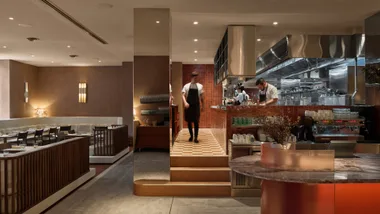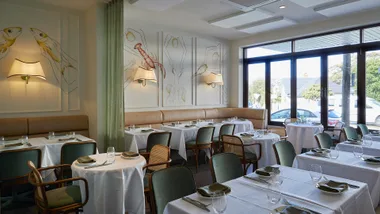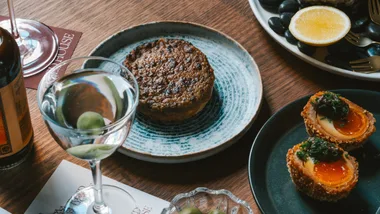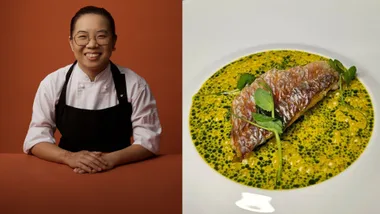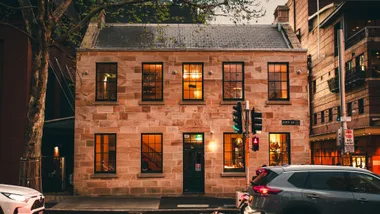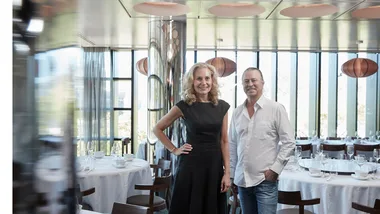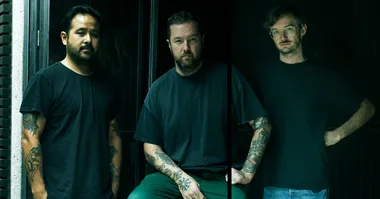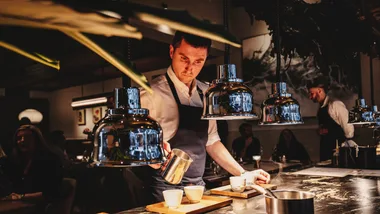A cleaner greener rock oyster.
What Shane Buckley’s rock oyster farm on Wapengo Lake, on the NSW south coast, became the first oyster farm to achieve Australian Certified Organic status in 2013.
How In the traditional post-and-rail oyster cultivation, rails of treated or tar-dipped pine are driven into the seabed to hold the oyster-growing racks. As well as leaching chemicals into the ecosystem, this method heavily shades the seabed, causing sea grasses and the species they support to die off. In the six years following his purchase of Wapengo Rocks near Bermagui in 2007, Buckley has converted the farm into an organic, sustainable practice using posts made from 100 per cent recycled, recyclable and environmentally safe plastic using a custom long-line harvesting system. The baskets, which let in much more sunshine, are clipped onto a fixed line and sway with the tide and wind until the oysters reach maturity.
Why Buckley’s oysters aren’t forcibly knocked from stakes, as they were using the previous system. His oysters’ consistent soft marine-vegetable flavours, delicate poached-egg creaminess and deep, even shells are the welcome results of that gentle treatment and the pristine environment he’s preserved.
Where Find Wapengo Rocks oysters at MoVida, Le Pelican and The Morrison Bar and Oyster Room in Sydney, plus MoVida and MoVida Aqui in Melbourne and near the source at the Bermagui Oyster Room. Buckley has also recently opened the Wapengo Rocks Oyster Shop in nearby Bermagui.
 Sophie McComas
Sophie McComas

